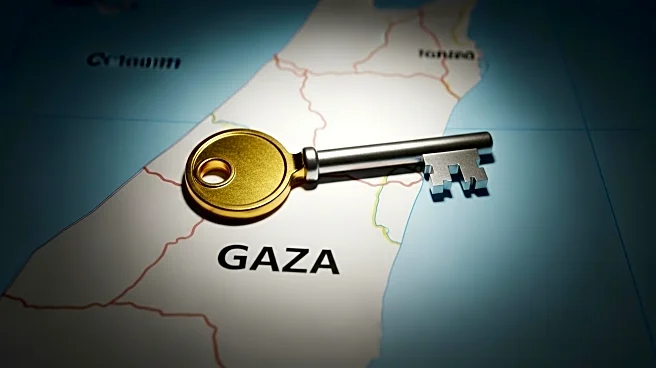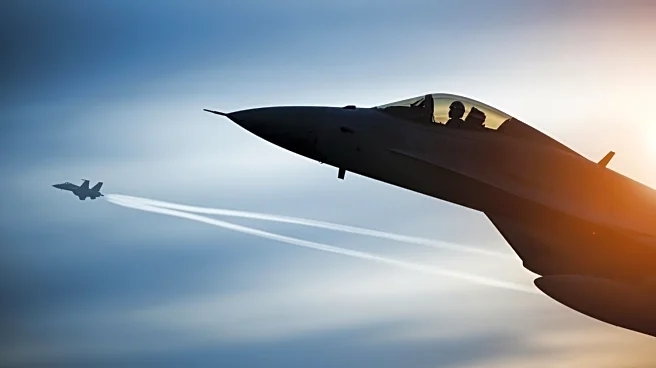What is the story about?
What's Happening?
Hamas is at a critical juncture as it decides whether to accept a ceasefire plan proposed by President Trump, which has been endorsed by Israeli Prime Minister Benjamin Netanyahu and other world leaders. The plan aims to end the ongoing conflict in Gaza, but Hamas has yet to accept it. The decision is pivotal for the future of Gaza, as it could lead to a cessation of hostilities and the introduction of humanitarian aid and reconstruction efforts.
Why It's Important?
The acceptance of the plan could significantly alter the humanitarian situation in Gaza, providing relief to civilians and potentially stabilizing the region. However, rejection could prolong the conflict, leading to continued suffering and instability. The decision will impact Hamas's political standing and its relations with international stakeholders, including Arab states and the broader international community. The outcome will have far-reaching implications for regional politics and the future of the Israeli-Palestinian conflict.
What's Next?
Should Hamas accept the plan, a phased ceasefire and the deployment of peacekeeping forces could follow, leading to a gradual improvement in the humanitarian situation. However, if rejected, the conflict is likely to continue, with potential repercussions for regional stability and international relations. The decision will be closely monitored by global leaders and could influence future diplomatic efforts in the Middle East.
Beyond the Headlines
The decision on the ceasefire plan could redefine the political landscape in Gaza, affecting the balance of power among Palestinian factions and international stakeholders. It raises questions about the role of international intervention in regional conflicts and the ethical considerations of balancing humanitarian relief with political sovereignty.















